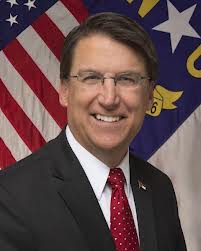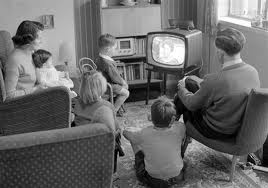
North Carolina is making national headlines with voter ID, with capital punishment, with tax reform and even educational priorities
Much of that change is being portrayed negatively in the press, though I do believe that much of that reporting is the result of a definite left leaning bias.
One of the priorities of the republicans has been to reform our educational system here in the state. And part of that strategy has been to limit spending:
The Senate’s budget, which passed last week, would freeze public teacher salaries for the fourth time in five years and spend $50 million less on K-12 education in 2013-14 than Gov. Pat McCrory’s proposal.
Funding for teaching assistants and professional development for teachers would also be slashed under the Senate plan, as would the 10- to 15-percent pay bonus for incoming teachers with master’s degrees.
Not that educational spending has been a target simply because legislatures feel that education should be cut, but rather because the budget doesn’t allow that spending to take place.
For example:
“The idea that we can simply increase teacher pay with the money we have … reveals ignorance about the different things the state government does and is obligated to fund,” he said.
He added that North Carolina’s high school graduation rate — which hit 80.2 percent in 2012 — is the highest it has ever been.
“We haven’t seen any evidence that freezing teacher pay has had any negative consequences on student performance.”
And there are other changes to the system that are taking place that should award more money to the right educators:
The Senate budget also includes a provision that would begin to eliminate teacher tenure at the K-12 level and shift to a pay-for-performance model — which rewards teachers based on classroom evaluations and students’ standardized test scores, not years of experience.
A full merit pay system would not be funded next year, but the budget allocates $10.2 million in 2014-15 to start implementing pilot programs for merit pay, which McCrory has said he supports.
Starting in fall 2014, tenured teachers could opt out of their tenure status in exchange for a four-year contract and a $500 bonus.
All of which is a long version of me saying that I support fiscal responsibility and value based increases in pay.
However, that being said, this is unacceptable:
“I do the babysitting to help get money to buy toys and books,” said the North Carolina native. “I even had to buy shelves and a stool for the kids to stand on to wash their hands at the sink. I spent about $500 on supplies last year, and It definitely hurts my own pocketbook.”
With school budgets across the country slashed, Martin is part of a growing number of teachers spending more of their own money for school supplies, according to a recent survey from insurance firm Horace Mann, which focuses on products for educators.
The problem has reached near-crisis levels, especially in states like North Carolina.
There’s a not so fine line in the expectation that a professional purchase reasonable equipment for their jobs. For example, at my office I buy my own notebooks, pens and pencils. I buy my own clocks and calculators. When I need to study for a specific technology, I buy the books and or course. But I do NOT buy paper towels, or desk cleaner. I don’t buy carpet scrubber or PCs for which I work company business.
I don’t buy my own desk phone or desk for that matter and I don’t contribute to the electric or water bills.
If these teachers are providing supplies out of their own pockets, the system is abusing them and we have to address that. One way or another, these teachers can not be expected to:
The survey said that 26% of the 814 teachers participating spent $400 of their own money on supplies last year—that’s a 3 percentage point increase from 2011 in the number of teachers spending that much.
The teachers need to send notes home with their kids and explain that parents have to pick up the slack – items like books and tissues, wipes and books and pencils, they need to come to school with the kids. I’ll tell you what, I get a note like that from my kid’s teacher and I’m going to talk to the principal and then the board.










